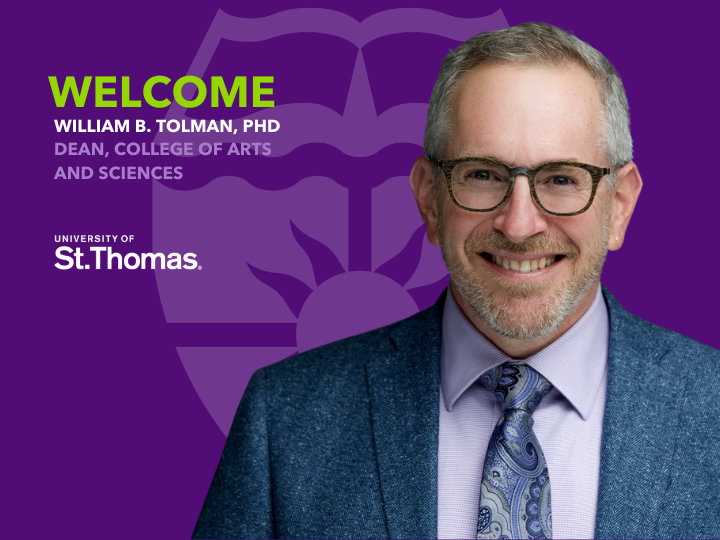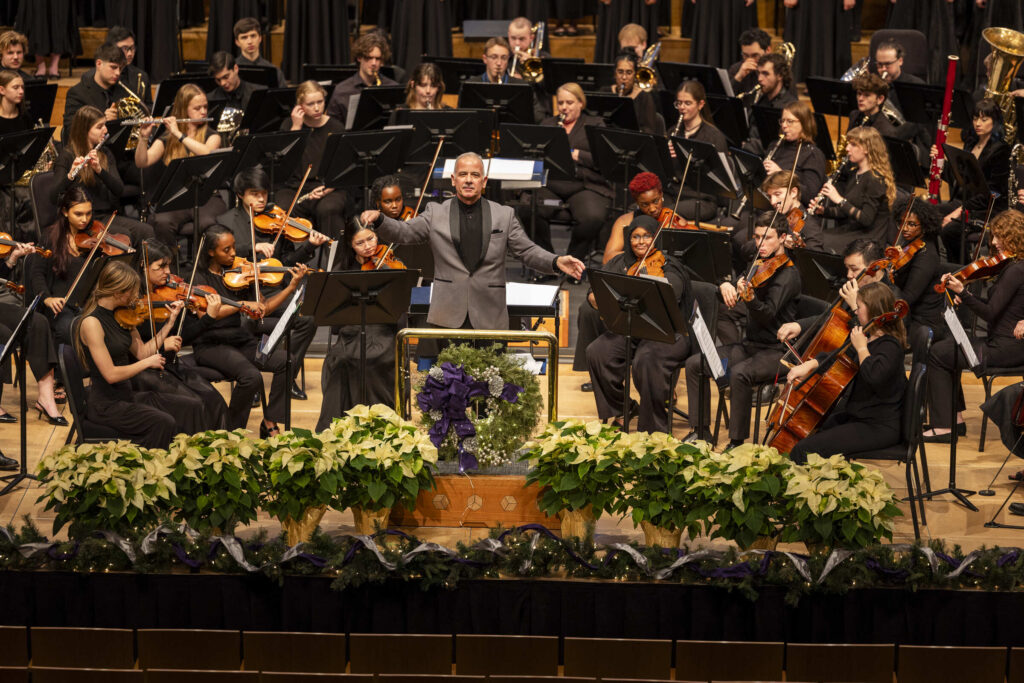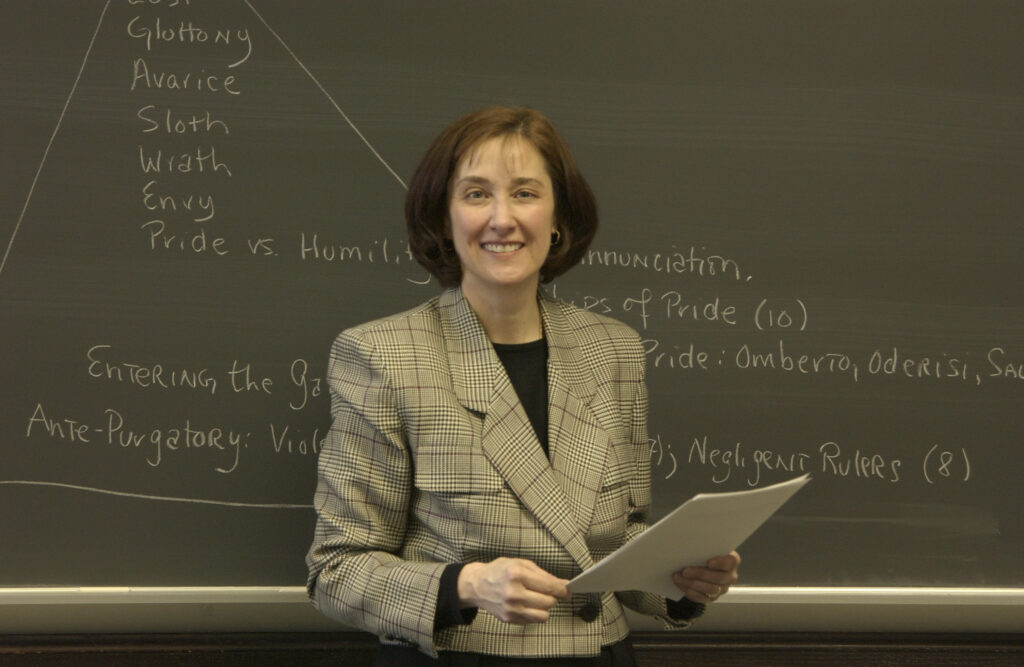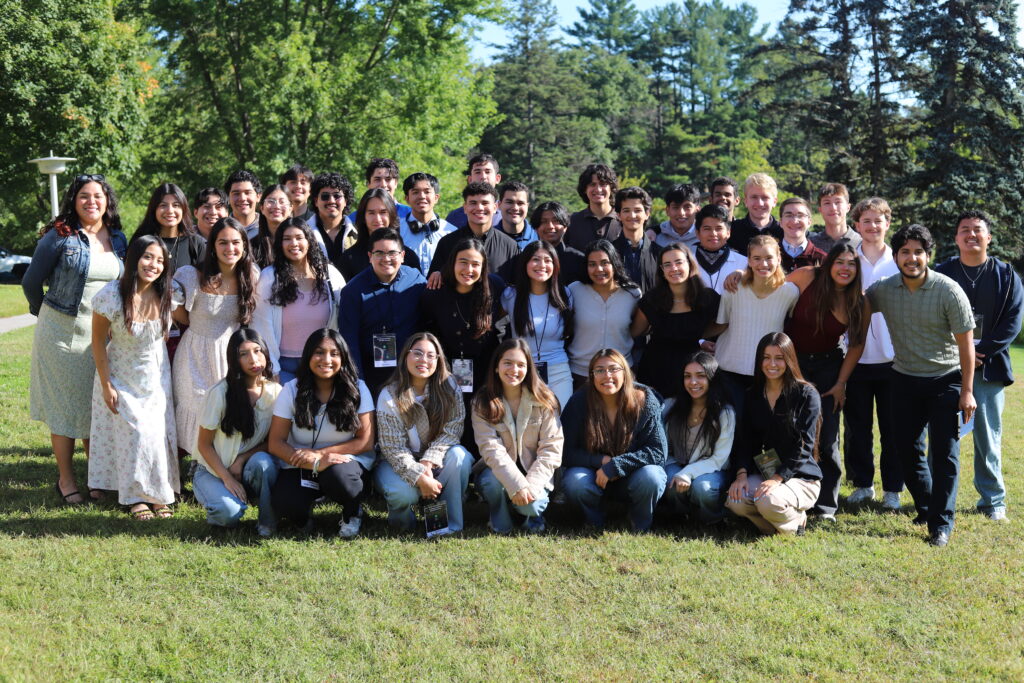The University of St. Thomas is turning to a widely respected chemistry researcher with a passion for interdisciplinary education to lead its College of Arts and Sciences into a new era.
Dr. William “Bill” Tolman – who is currently serving as vice dean of research and entrepreneurship in Arts & Sciences at Washington University in St. Louis – has been appointed to become the next dean to lead the St. Thomas college, which serves as the liberal arts foundation at Minnesota’s largest private university.
Tolman, who also spent nearly three decades at the University of Minnesota’s Chemistry Department, joins a list of distinguished scholars who over the years have helped shape the College of Arts and Sciences into the academic heart of the university. Every St. Thomas undergraduate, regardless of major, enrolls in courses within the college as part of the university’s core curriculum. Tolman’s appointment comes at a pivotal juncture in the college’s history as St. Thomas continues its evolution into a premier national Catholic university.
That evolution will include the anticipated 2024 opening of the Schoenecker Center for STEAM (science, technology, engineering, arts and math) education, which will embody St. Thomas’ approach to interdisciplinary education.
Interdisciplinary champion
“Dr. Tolman is a champion for interdisciplinary efforts and has demonstrated great appreciation for the different needs of the areas that comprise the college,” Executive Vice President and Provost Eddy Rojas said in announcing the appointment. “Just as critical as his scholarship and research background, Dr. Tolman’s convictions and values make him a strong fit within our St. Thomas community. His background demonstrates an ability to build and contribute to an inclusive and equitable culture that celebrates the contributions of all.”
Tolman will assume his new role at St. Thomas on July 1 after spending more than four years at Washington University, where he supported research initiatives and brought a renewed focus on innovation and entrepreneurship to the university’s Arts & Sciences unit. He worked closely with faculty, for example, to revamp the school’s grant administration function, which allowed faculty to pursue critical research projects more effectively. He was also instrumental in launching an internal grant program that focused on stimulating novel and impactful research, scholarship and creative practice initiatives led by tenure-track and research faculty.
“In reviewing Dr. Tolman’s credentials, it became very clear that he understands the importance of providing faculty the environment, resources and support they need to excel and be innovative, which we know will be critical to elevating St. Thomas’ reputation,” said James P. Gearen, who represented St. Thomas’ Board of Trustees in the interview process. “As a longtime instructor, he understands firsthand the needs of both faculty and students, and his enthusiasm for hands-on learning and the interdisciplinary opportunities that will be provided by the Schoenecker Center will be a great asset to the university.”
Academic excellence advocate
Tolman’s background also shows a strong commitment to connecting with students to better understand their academic needs. At Washington University, for instance, Tolman was among a group of instructors designated as Faculty Fellows, living with students in a Residential College and interacting with them through cultural happenings, informal help sessions, panel discussions and community-building events.
After a postdoctoral stint at the Massachusetts Institute of Technology, Tolman began his career in 1990 as an Assistant Professor at the University of Minnesota. While in the Twin Cities, he rose through the ranks to Distinguished McKnight University Professor and received numerous accolades for his work to advance the field of inorganic chemistry.
His work in chemistry also sparked a deep appreciation for an interdisciplinary approach toward education; Tolman credits his experience as a founding member of an NSF Center for Chemical Innovation, for example, with helping him see how research collaborations with scholars from varying backgrounds lead to discoveries, innovation and unique educational experiences.
Aside from varying academic disciplines, Tolman also points to the importance of creating cultures of inclusion for people of diverse backgrounds to achieve excellence in teaching and research. At the University of Minnesota, for instance, he helped develop a committee of faculty, staff and students that led LGBTQIA+ ally training, workshops on academic civility and discussions of implicit bias, among other events. At Washington University, he oversaw the development of multiple diversity, equity and inclusion (DEI) committees in the natural science departments in collaboration with other units. These initiatives ultimately played a major role in successfully hiring and retaining diverse faculty, staff and students.
Tolman holds a bachelor’s degree from Wesleyan University, and a doctorate in chemistry from the University of California, Berkeley. Among many other honors, he is a Fellow of the American Association for the Advancement of Science and the American Chemical Society and has published more than 235 peer-reviewed articles that have been cited more than 25,000 times. He currently serves as editor-in-chief of Inorganic Chemistry.
“St. Thomas’ liberal arts foundation has created a rich history of bringing faculty and students together in unique educational and research collaborations, and I’m looking forward to continuing that legacy,” Tolman said. “I’m excited to work with the community to drive the College of Arts and Sciences toward distinction and its rightful role as the core of a great university.”







